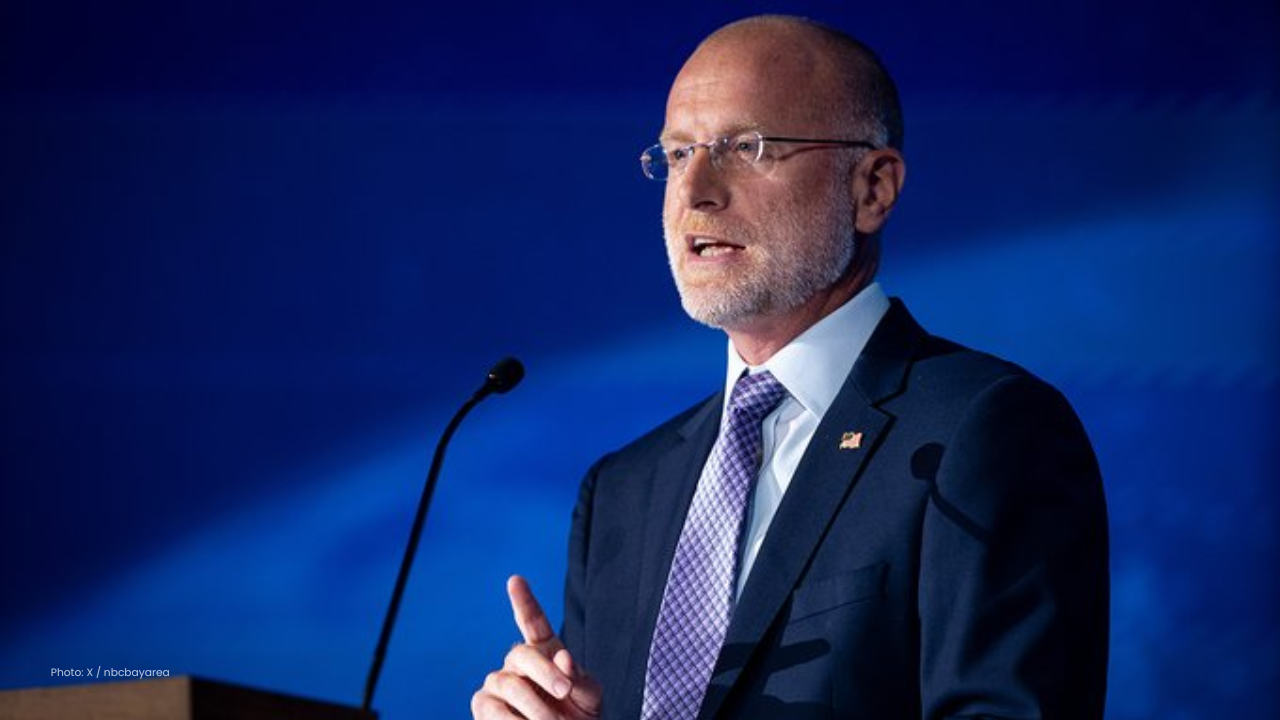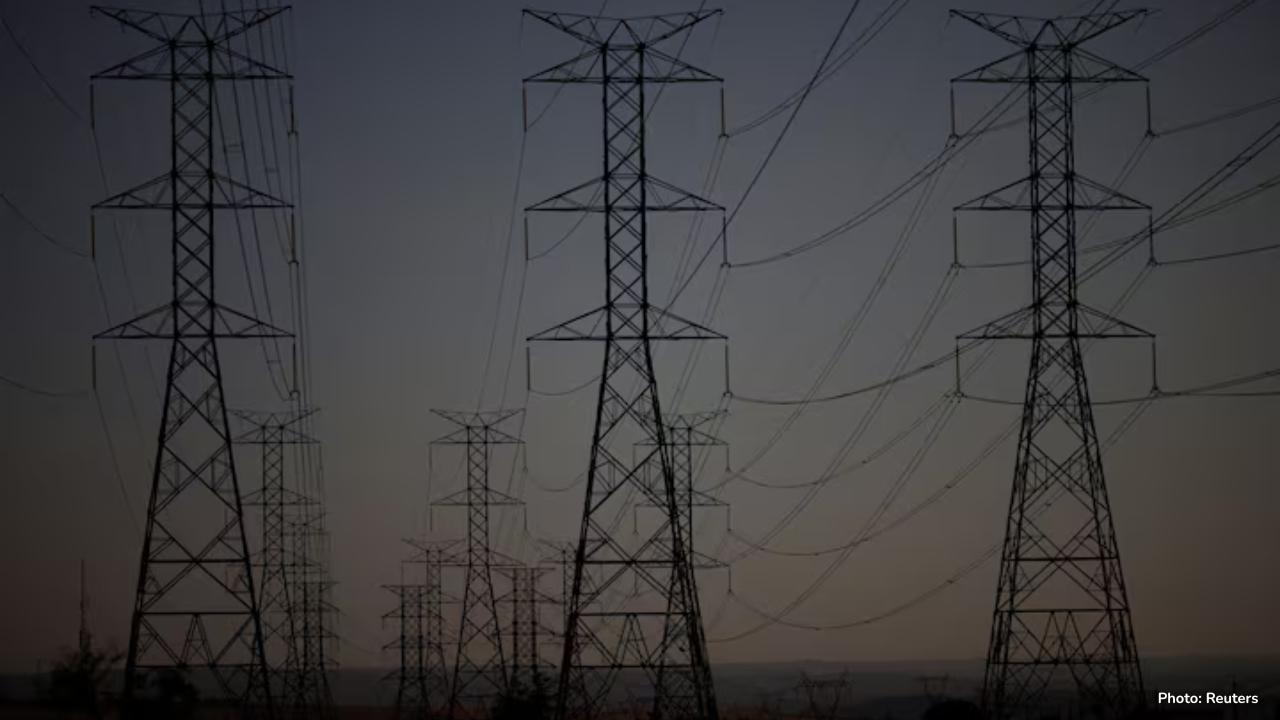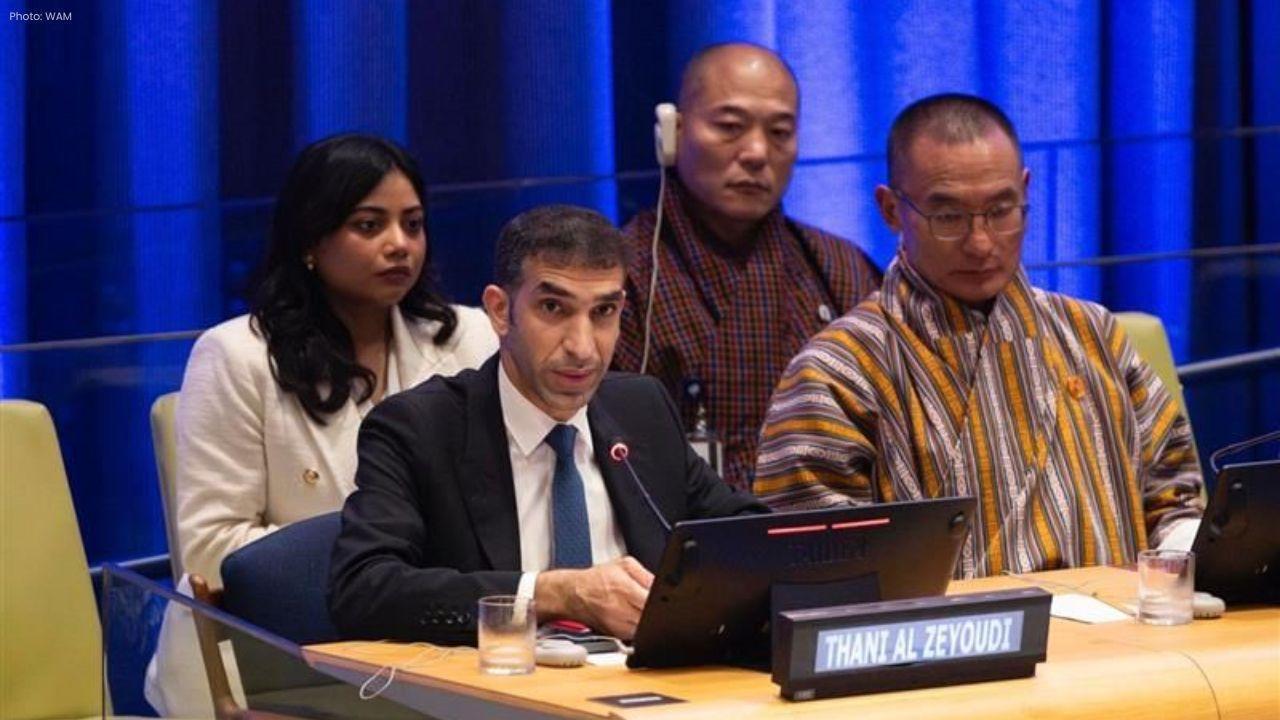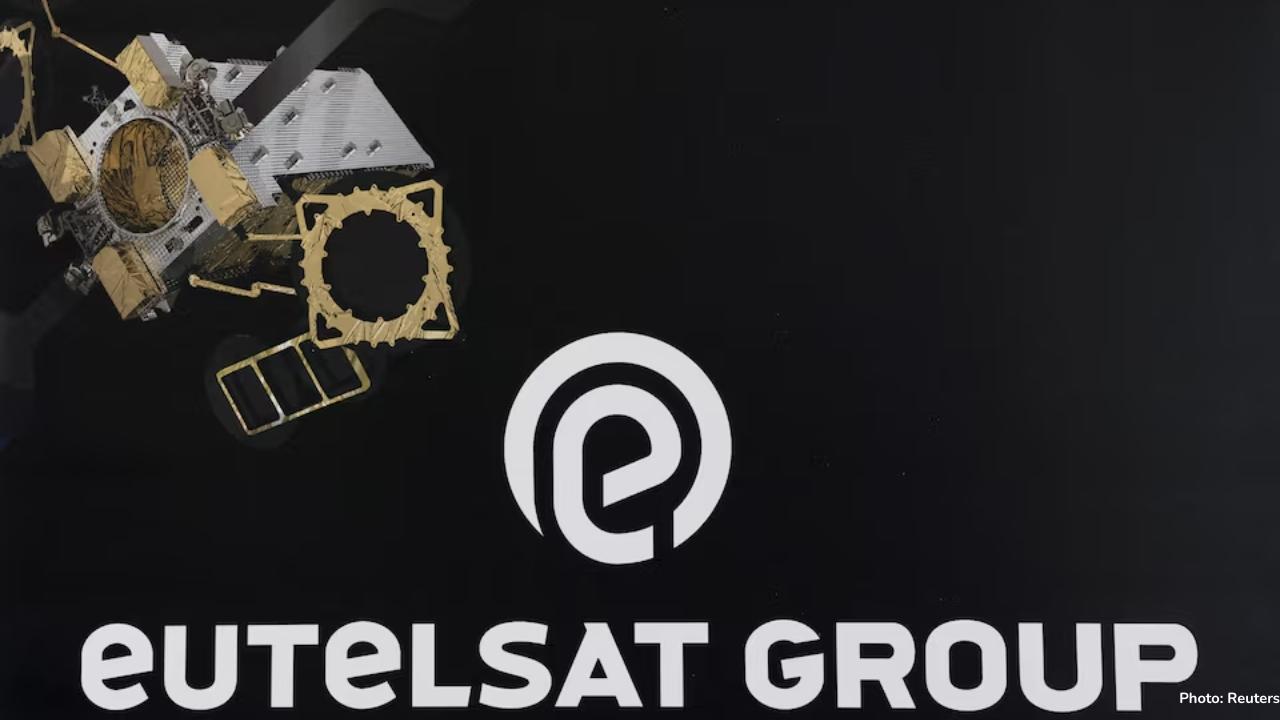
Post by : Naveen Mittal
The world of American late-night comedy has been shaken. After more than two decades on air, comedian Jimmy Kimmel’s show on ABC has been suspended indefinitely. The decision came after he made controversial remarks about the death of conservative activist Charlie Kirk, comments that critics said mocked the president and unfairly targeted his supporters.
This suspension is not an isolated case. It reflects a much larger battle between the Trump administration and sections of the media that the president accuses of bias. At the center of this confrontation is Brendan Carr, the powerful chairman of the Federal Communications Commission (FCC). Under his watch, the government is exerting new and aggressive pressure on broadcasters, tech firms, and entertainment giants.
Jimmy Kimmel has been a familiar face on American television for nearly 23 years. Known for his sharp humor and political jokes, he became a mainstay of late-night comedy alongside names like Stephen Colbert and Jimmy Fallon.
But in 2024, his career took a sudden turn. After the killing of Charlie Kirk, Kimmel made comments on his show that critics said mocked the president and implied blame on his supporters. Within hours, ABC announced that Kimmel’s program would be “pre-empted indefinitely.”
The move sparked debate across the country: was it truly about offensive remarks, or was it part of a larger campaign by the Trump administration to silence critical voices?
Kimmel’s suspension follows a series of high-profile clashes between the Trump administration and media companies:
Stephen Colbert’s Late Show cancelled: Paramount shut down the most-watched late-night program weeks after Colbert criticized Trump. The company insisted it was for “budgetary reasons.”
Threats against broadcasters: Outlets like Comcast faced threats of losing their federal licenses for what the administration called “distorted coverage.”
Funding cuts: Public broadcasters NPR and PBS saw their budgets slashed by Congress at Trump’s urging.
Lawsuits: Trump personally filed lawsuits against several major newspapers, including the Wall Street Journal and New York Times, accusing them of bias.
The message has been clear: networks and media outlets that appear too critical of the president risk political and financial consequences.
At the center of these moves is Brendan Carr, a 46-year-old lawyer and longtime FCC member who became chairman in January. Trump once praised him as a “warrior for free speech”, but Carr’s interpretation of that role has raised concerns.
Traditionally, the FCC oversees broadcast media—radio, television, and satellite. But Carr has taken a far more expansive view of his powers, sending letters to Apple, Google, and other tech firms, demanding to know how they rank news stories and accusing them of running a “censorship cartel.”
In an interview, Carr warned that media companies could face regulatory consequences if they did not push back against “harmful” content like Kimmel’s remarks. Within hours of that warning, several ABC affiliates suspended his show.
President Trump has not hidden his frustration with the press. On Air Force One, he suggested that TV networks opposed to him should “maybe” have their licenses taken away.
He has argued that many major media outlets spread bias against him, pointing to coverage of issues like immigration and foreign policy. His administration has used both lawsuits and regulatory threats to pressure companies.
While Trump insists this is about fairness, critics argue it is a dangerous assault on freedom of the press.
Interestingly, not all conservatives are comfortable with these moves.
Tucker Carlson, a prominent Trump ally, has expressed concern that going after media licenses could endanger free speech.
Jerry Moran, a Republican senator from Kansas, also warned that the administration might be setting a precedent that future presidents could misuse.
This shows that even within the president’s base, there is unease about the government’s role in influencing media companies.
Some networks have chosen to settle rather than fight:
Paramount (CBS owner) reached a deal with the government after Trump accused it of bias in editing an interview with his political rival Kamala Harris. As part of the settlement, CBS agreed to stop editing political interviews.
Disney (ABC owner) also paid to resolve a defamation lawsuit filed by Trump.
These settlements, along with promises to ensure “diverse viewpoints,” have raised questions about whether networks are self-censoring to keep the government satisfied.
Experts say two main reasons explain why large media companies often avoid confrontation:
Consolidation: Many media outlets are part of massive corporations with interests beyond news—movies, theme parks, internet services. They may avoid fights to protect their other businesses.
Financial calculations: News and late-night comedy represent a relatively small share of overall revenue. Cancelling a show or paying a settlement may be cheaper than facing prolonged legal or regulatory battles.
This makes networks more vulnerable to political pressure than independent media outlets like newspapers, which are not regulated by the FCC.
Media scholars warn that this trend could reshape how Americans get their news and entertainment.
Professor Anthony Nadler from Ursinus College argued that companies are “pre-emptively censoring themselves” to avoid trouble with presidential power. He compared it to earlier decisions by streaming services to remove content in response to activist campaigns.
Jeffrey Sonnenfeld of Yale University described the Trump administration’s actions as “unprecedented intrusions into business affairs.” However, he noted that Disney CEO Bob Iger has acted decisively in the past—such as cancelling Roseanne Barr’s show in 2018 after offensive tweets.
The Jimmy Kimmel case has become symbolic of a much larger issue:
Should governments have the power to pressure networks into cancelling shows or changing coverage?
Are companies acting responsibly, or are they giving up too easily to protect profits?
What happens to free expression and democracy if critics of those in power are silenced?
These questions are now at the heart of America’s media and political landscape.
Jimmy Kimmel’s suspension marks another turning point in the tense relationship between the Trump administration and the media. Whether viewed as necessary accountability or political intimidation, the outcome is the same: broadcasters are changing their content under government pressure.
As debates over free speech, media independence, and political influence grow louder, one thing is clear—the battle between the Trump administration and the media is far from over.
#trump #fcc #jimmykimmel #freedomofspeech #mediapressure #uspolitics #abcnews #latenighttv #pressfreedom










Brazil's Surplus Clean Energy Attracts Crypto Miners
Brazil's excess renewable energy is luring cryptocurrency miners. Companies like Tether and Renova E

Visa Tests Stablecoins to Make Global Payments Faster
Visa is testing stablecoins for international payments, aiming to speed up transactions and reduce t

Opera Unveils Neon AI Browser for Smarter Web Browsing
Opera introduces Neon, an AI-powered browser that automates tasks and enhances privacy, aiming to re

Albanese Visits Sheikh Zayed Grand Mosque in Abu Dhabi
Australian PM Albanese tours Sheikh Zayed Grand Mosque, highlighting peace, tolerance, and cultural

Eutelsat Seeks More EU Investment to Compete with Starlink
Eutelsat aims to close funding gap to challenge Starlink's dominance in satellite internet, with Fra

India Receives Above-Average Monsoon Rains for Second Year
India experiences above-average monsoon rainfall for the second consecutive year, boosting agricultu